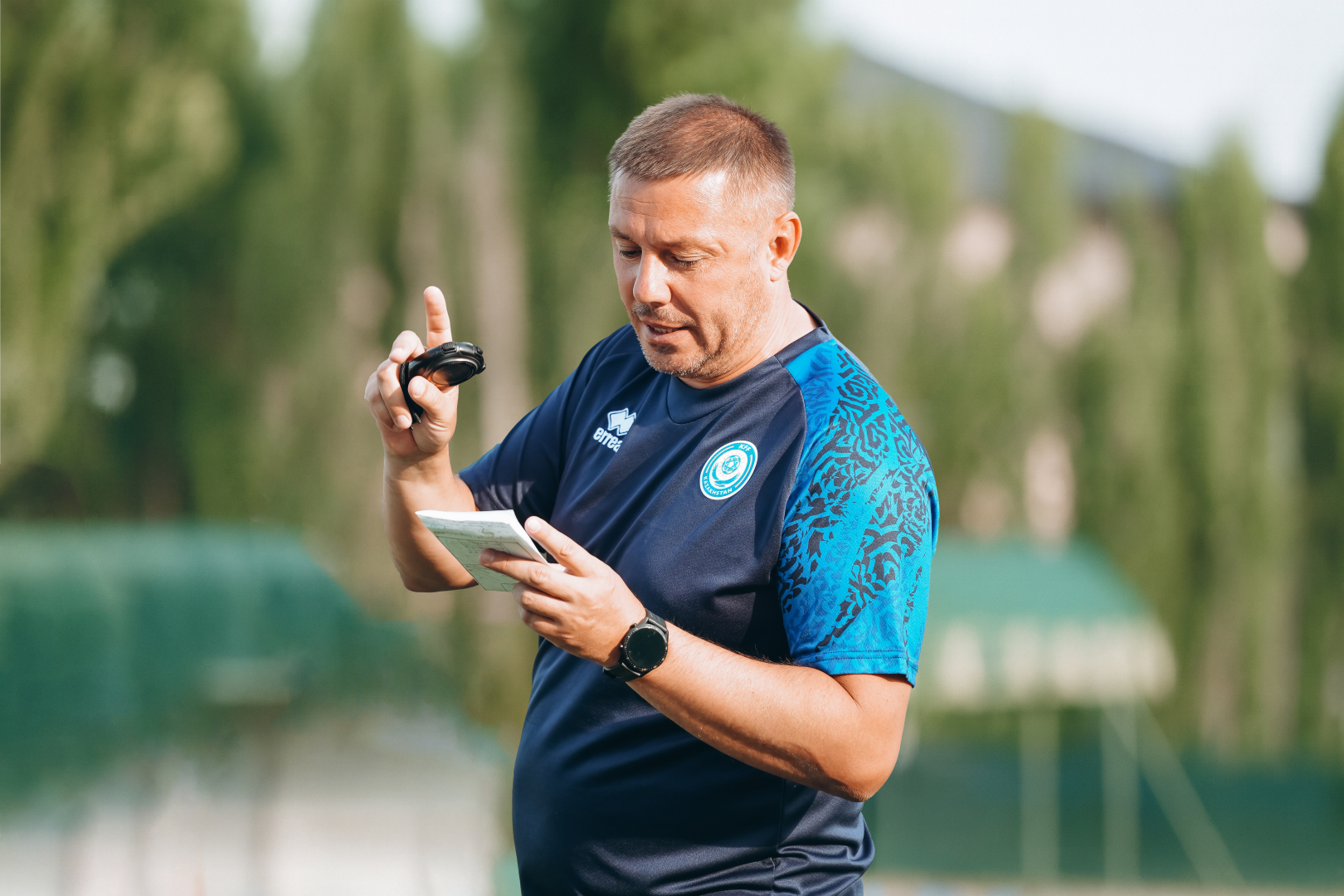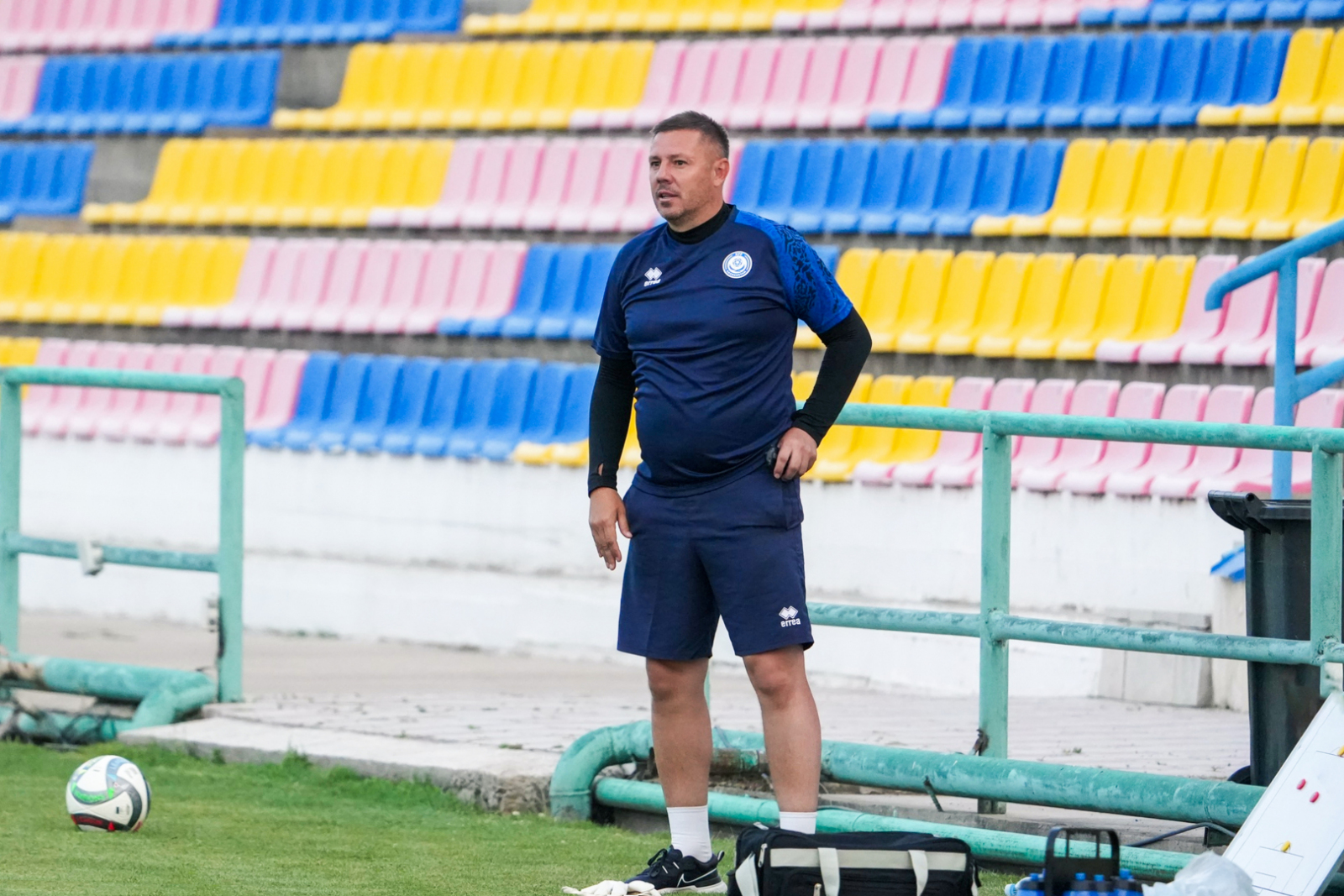Kirill Keker: "Satpayev serves as a role model for all young players in Kazakhstan."

– Kirill Sergeevich, working with the national team and the club are different areas; do you anticipate a need for restructuring?
– Yes, the nature and approach to work have changed, I need to adopt to new conditions and regulations. This presents a new experience and an opportunity for development as a coach.
– You have already conducted three friendly matches with the U-19 team. In June, you faced Turan, Ontustik Academy, and Ordabasy. How satisfied are you with the results and the players' performances?
– The training camp was held at the BIIK base in Shymkent, which provided good conditions for our activities. It is important to note the exceptional support from the staff at the base in various matters.
For various reasons, the last time this age category gathered was in November 2024. Time has passed, and numerous changes have transpired in the players' development. This was our first gathering, focusing primarily on assessing the players, introducing them to our philosophical and tactical framework, and evaluating their potential for strategic planning. We played three friendly matches in a 45-minute format with two squads to assess the players' abilities in competitive environments. Opponents were selected in ascending order of strength, as we aimed to foster a competitive environment and simulate real-game situations. The training camp was conducted at a commendable psycho-emotional level; we accomplished all planned activities, gathered substantial data for analysis, and outlined future actions. At this stage of team formation, the coaching staff views the outcomes of the training camp positively.
– The team included Shyngys Kaliyev and Aldiyar Nurgali from the Spanish ''Levante''. What would you say about them, particularly regarding their football thinking?
– I prefer not to comment on individual players. However, both possess the requisite attributes to advance to major leagues, and their progress ultimately hinges on their efforts. Regarding their football thinking, I did not observe a significant difference among the players, as they have matured in Kazakhstan and retain a deep connection to their homeland.

– Dastan Satpayev is well-known for his contributions to Kairat, and there are currently several representatives of the Almaty club within the team. Are there any other talents of similar potential?
– The definition of talent is subjective. While I hesitate to draw direct comparisons to Dastan, as he stands as an exceptional case, it is important to utilize his development path as a positive example for young players in Kazakhstan, illustrating the journey from point A to point B. Currently, there are players who can compete at a higher level, but the crucial factors are their readiness to take action and the sacrifices they are willing to make. The alignment between their aspirations and their efforts, both on and off the pitch, will ultimately determine their paths.
– Will you be focusing more on selection for the U-19 team in the nearest future?
– Selection is a continuous process. We observe a large number of players performing at different levels, monitor their playing time, and watch how they develop and perform. The players are given recommendations on what they need to work on and in which areas of the game they need to improve. It is important for us to be prepared for various situations.
– In the autumn, the team will participate in the Slovenia Cup tournament. Would you tell us about the format, the opponents, and whether this will be an important stage in preparation for the qualifying round.
– We will participate in the tournament, which consists of two groups of four teams. We will play three games in our group, and that's it. It is not yet clear how the winner will be determined. European and Asian national teams will take part in the tournament. From a logistical point of view, with games every two days, the conditions will be similar to those in the qualifiers, and the players will gain international experience playing against different opponents. The coaching staff sees these games as an opportunity to once again assess the players' level, observe their reactions and actions in stressful situations, see the difference and level of our preparation, how well the style and model of play we propose works, and obtain a lot of useful information that should make us better and help us prepare properly for the qualifiers.
– In modern football, there is a trend for players to reach professional level at a young age, 16-17 years old. Do you think our players are ready for this, and how right is it?
– The question is, how ready are our clubs to trust young players? Unfortunately, we have many stereotypes that prevent players from playing at such a young age. In my opinion, every club should have a strategy and an understanding of how the club is developing and where it is heading at this stage. In most cases, we do not have this; everything happens spontaneously and in the moment, so it makes no sense to talk about right or wrong. If a player is ready, he can play at any age; there should be no restrictions.
– What is your personal goal in working with the U-19 team?
– I enjoy working with young players, watching their development and progress. Unfortunately, the U-19 teams have never made it to the elite round, and it's difficult because you're playing on the European stage against strong teams, but we agreed with the guys to try to take a step forward, play boldly and move forward. At the moment, the focus is to promote from the group.